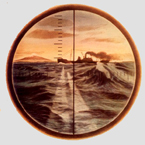Mike Scholl
Posts: 9349
Joined: 1/1/2003
From: Kansas City, MO
Status: offline

|
quote:
ORIGINAL: wdolson
Coming into this thread a little late. If it was 1938 and I knew what was most needed in the upcoming war, I would cancel all BB projects not currently under construction and dedicate all capital ship yards to building fast fleet carriers.
If the US had 6 new CVs working up when Pearl Harbor happened, the Pacific War would have been much shorter.
The battleship still captures the imagination today. The big guns on a battleship are larger bore than just about any land based gun ever built. A few German guns were bigger, but they had very limited use. Leopold (aka Anzio Annie), one of the most famous was only 280mm, which is only around 11 inches.
Japan had a tremendous capital tied up in big battleships that saw very limited use. The Musashi, which almost broke the back of Japan's economy, only fired her main batteries once in anger. And that was at TBF Avengers. She never got within sight of an Allied ship.
The Yamato had a similarly useless life. She was only used for her intended purpose once in the Battle Off Samar where she and other battleships attacked a group of escort carriers. The largest American surface ship to oppose them was a destroyer. Hardly an even fight. Tactically it was a victory, of course, strategically it was a disaster. It achieved virtually nothing in the end.
I only count three times battleships squared off against one another in WW II. In all of them aircraft played a significant role. In the sinking of the Bismark, a Fairey Swordfish jammed the rudder, and sighting reports helped the RN catch the Bismark. In the battleship dual off Guadalcanal, aircraft from Guadalcanal finished off the cripple the next day. At Surgio Strait, no aircraft took a direct role, but extensive and good quality sighting reports allowed Ollendorf to position his forces in the best possible ambush with catastrophic results for the Japanese.
Sexy as battleships were, the best use of the shipyards for the US would be to accelerate the Essex program, or at minimum, build more Yorktowns. If Japan had used the steel that went into the Yamato class on Shokakus, they could have had 4-6 new carriers by mid-42. The Shokaku's were probably the peak of development. They were tougher than any other class, and had a very large capacity. The Unryus (sp?) were essentially copies of the Hiryu, which was cheaper to build, but nowhere near as tough or as large.
Bill
All well and good...., except that that was not the question posed! Of course, neither was all this nonsense about the Second World War's "most overated" Battleship, so perhaps you can be forgiven for not noticing the title of the thread.
|
 Printable Version
Printable Version


















 New Messages
New Messages No New Messages
No New Messages Hot Topic w/ New Messages
Hot Topic w/ New Messages Hot Topic w/o New Messages
Hot Topic w/o New Messages Locked w/ New Messages
Locked w/ New Messages Locked w/o New Messages
Locked w/o New Messages Post New Thread
Post New Thread